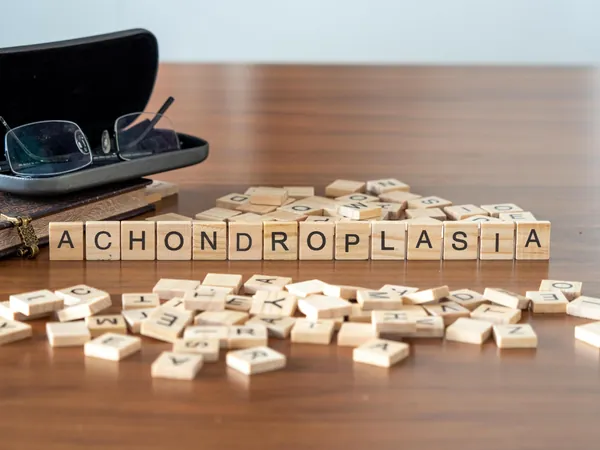
Breakthrough Treatment Infigratinib Shows Promise for Children with Achondroplasia in Groundbreaking Phase 2 Trial
2024-11-18
Author: Daniel
Introduction
In a significant development for pediatric healthcare, the investigational drug infigratinib has demonstrated encouraging results in children suffering from achondroplasia, a genetic condition characterized by short stature and related health issues. This positive outcome stems from the PROPEL 2 clinical trial, announced by BridgeBio Pharma and published in The New England Journal of Medicine.
Trial Results
The trial revealed that treatment with infigratinib led to a statistically significant and sustained increase in annualized height velocity (AHV), a key measure of growth in children. Specifically, the trial participants showed a mean increase in AHV of 2.50 cm per year at 18 months, along with an improvement in height Z-score and body proportionality. Notably, there were no serious adverse events that necessitated discontinuation of the treatment, marking a milestone in safety for this therapy.
Trial Details
The PROPEL 2 trial involved 72 children aged between 3 and 11 years, who received varying doses of oral infigratinib over a period of 18 months. The investigational therapy is a selective tyrosine kinase inhibitor targeting FGFR1-3, and participants were distributed into five cohorts based on dosage, showcasing the drug's potential to safely enhance growth without compromising overall health.
Expert Opinions
Dr. Ravi Savarirayan, the lead investigator from Murdoch Children’s Research Institute in Melbourne, expressed optimism about the findings, stating, "These data highlight the potential of infigratinib to not only increase height but more importantly, enhance functionality for children with achondroplasia."
Adding to this sentiment, Dr. Melita Irving from Guy’s and St Thomas’ NHS Foundation Trust commented on the safety profile of infigratinib, stating, "We are encouraged to see no safety signals and no adverse changes in bone age or bone mineral density."
Looking Ahead
Looking ahead, BridgeBio Pharma is actively continuing the research journey with the PROPEL 3 trial, expecting to complete participant enrollment by the end of 2024. The FDA has already recognized the potential of infigratinib, granting it Breakthrough Therapy Designation, Orphan Drug Designation, Fast Track Designation, and Rare Pediatric Disease Designation.
Conclusion
The implications of these findings extend beyond height increase; they symbolize hope for enhanced quality of life and functional capabilities for children suffering from skeletal dysplasia. As the medical community awaits further evaluations and trials, the future appears bright for innovative treatments like infigratinib, potentially reshaping the landscape for pediatric growth disorders.





 Brasil (PT)
Brasil (PT)
 Canada (EN)
Canada (EN)
 Chile (ES)
Chile (ES)
 España (ES)
España (ES)
 France (FR)
France (FR)
 Hong Kong (EN)
Hong Kong (EN)
 Italia (IT)
Italia (IT)
 日本 (JA)
日本 (JA)
 Magyarország (HU)
Magyarország (HU)
 Norge (NO)
Norge (NO)
 Polska (PL)
Polska (PL)
 Schweiz (DE)
Schweiz (DE)
 Singapore (EN)
Singapore (EN)
 Sverige (SV)
Sverige (SV)
 Suomi (FI)
Suomi (FI)
 Türkiye (TR)
Türkiye (TR)